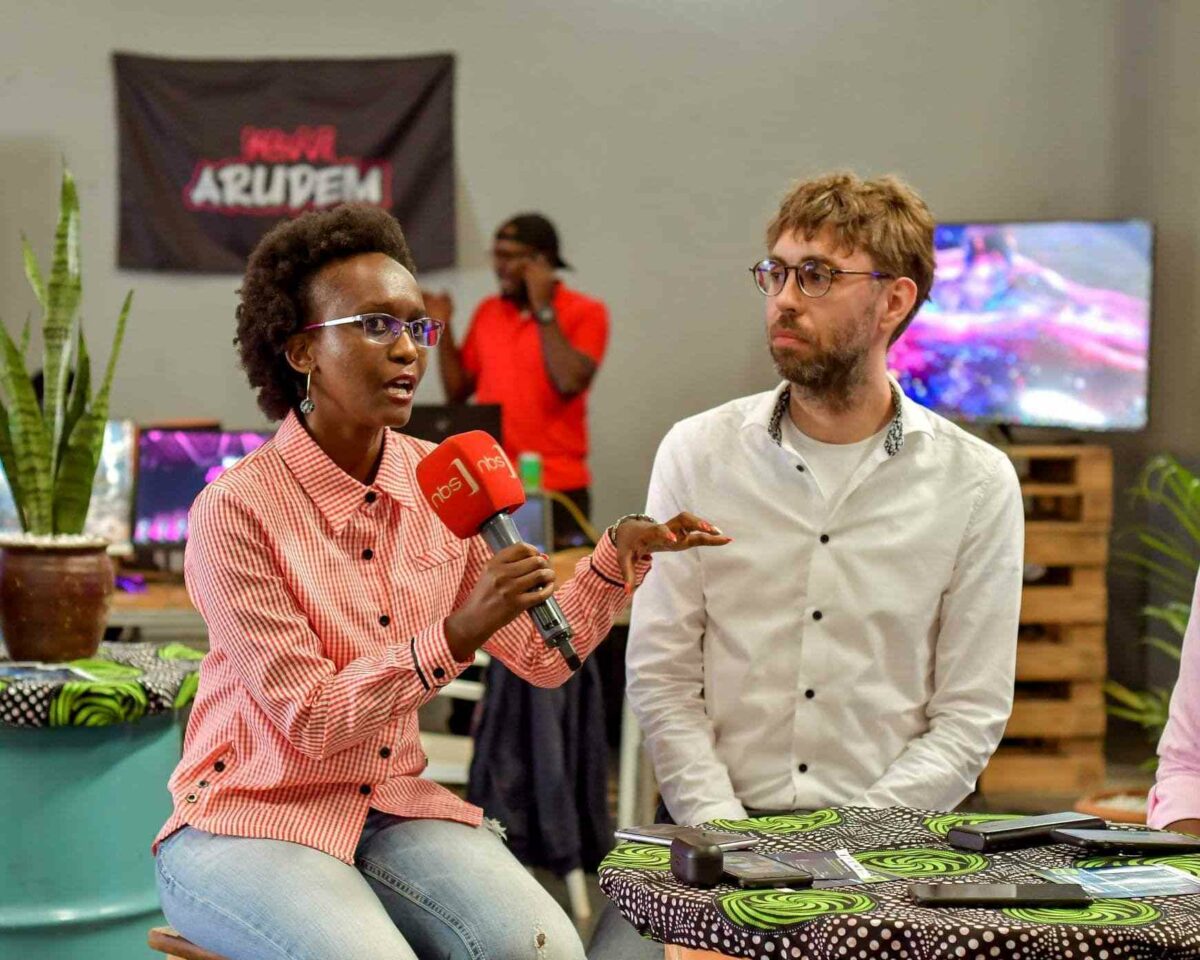Video and computer games have grown into one of the world’s leading cultural economies. They are integrated into the lives of most of their users, whether on a console or smartphone.
“Games and Politics” is a global traveling gaming exhibition developed by the ZKM (Centre for Art and Media) in Karlsruhe with the Goethe-Institut.
The exhibition showcases the role and relevance of video games and gaming in society and how the games can influence politics.
It brings together 18 computer games created in the last fifteen years with explicitly political and social content. It encourages people to play the games on devices incorporated into the exhibition. These games centre around six themed categories. Including making opinions, military matters, multiple perspectives, media critique, migration stories, and mapping power. The selected games challenge the norms and structures of the genre and technical outlines of computer and video games.
Uganda is the second stop in Africa that the exhibition has showcased. The first was in Nigeria in 2019. It will be running for two months at Design Hub, 5th street Industrial Area in Kampala, hosted by Konrad-Adenauer-Stiftung in close collaboration with Goetzentrum.
The event commenced on 18th March with an interactive panel on Diversity, Safety & Inclusion reflecting gaming in the context of Civic Education- themes under Gender roles, sexuality, political implication, option making, and youth impact with Anna Reismann country director Konrad-Adenauer-Stiftung Uganda & South Sudan. Ivan Kibuuka founder Navvi Gaming, a gaming and esports organization. Raymond Mujuni, an award-winning journalist, and Jackie Kemigisha from Citizen Report.
The second evening’s panel included Raymond Malinga, founder of Creatures animations. Phillip Mukasa, game developer at Sunjata. Grace Namutebi Brand Manager from Mountain Dew. The conversation navigated around gaming as an economic activity and the impact of collaboration in the realm of the growing digital economy.
For many players who have been gaming since childhood, gaming has contributed massively to their perception of culture. It has become central to their lives.
There is an undeniable nexus between civics and gaming. Video games indeed give insight into the relationship between entertainment and consumers. We can pinpoint flaws in governmental, legal, and economic systems and try to address them. Video games are influenced by politics, but politics also bear the potential to be influenced by video games.
Gamers make up almost a third of the global population today. Across Africa, gaming has become a market with significant economic benefits. Africa is one of the world’s youngest continents. 60% of the population is below the age of 25. This young population is a potential market for gaming activities and investment.
According to Newswagg, there is a growing appetite for trading gaming assets using digital currencies. 41.9 million gamers own cryptocurrencies across the world. 38% of them are millennials aged 21-38 years old.
Africa and the Middle East have a combined 5.9 million gamers owning crypto, with a potential to shore up these numbers in Africa by 2050, seeing as the continent will have the most youthful population.
80% of gamers with crypto accounts are interested in using digital currency for gaming purchases, with 67% yearn for an opportunity to use cryptocurrency in gaming.
